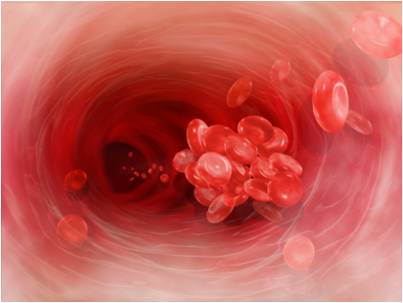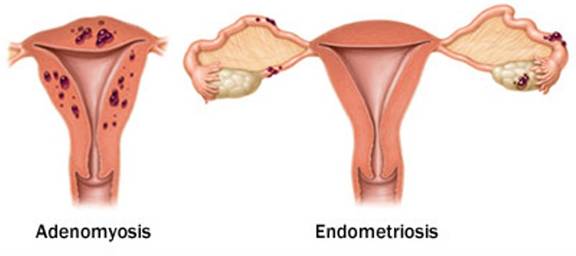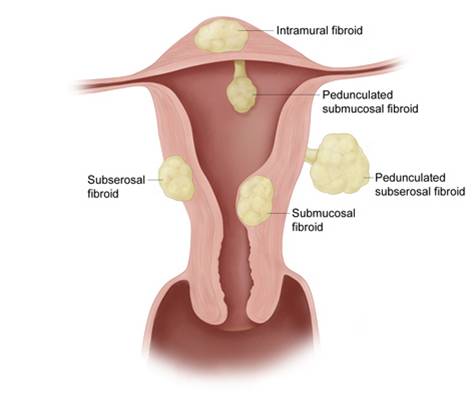Many women notice blood clots during their menstruation. The clots may appear bright red, brown or even black in color. These clots are often shed on the heaviest days of bleeding (the first and the second day). The presence of multiple clots in your flow may make your menstrual blood appear thick or denser than usual. Menstruation blood clots are normal and a part of the whole menstruation process.

What is coagulation?
The hardening of the blood tissues that takes place due to the change in its state (from liquid to solid state) is called coagulation.
What is a Blood clot?
Blood that has been converted from a liquid to a solid state is known as a blood clot. Blood clot appears as a semisolid / gelled mass of blood tissue.
What is Clotting?
Clotting is the solidification of blood in a process known as coagulation.
What is an Anticoagulant?
Anticoagulants are substances that prevents coagulation (stops blood from clotting).
Blood clotting during periods may happen due to a number of factors. Below we have put together all possible reasons that cause blood clotting.
Heavy bleeding can cause blood clotting.

- Many women may find more blood clotting during the first few days of their periods. This happens because during periods, the blood is being dispelled from the body at a very fast rate. While your body releases the menstrual blood, the uterus also releases anticoagulants that keep the blood fluid and thinned. . On the days of a heavy flow however, the blood is being released so rapidly that the anticoagulants cannot work at a fast and effective rate which in turn leads to blood clots. This kind of clotting is considered to be normal. If you have lighter menstrual periods, you probably won’t have issues with clotting.
Hormonal Imbalance can cause blood clotting.
- The female hormones progesterone and estrogen together work to regulate the normal flow of blood when the uterine lining is shed during menstruation. Any flactuations in the hormones makes the the wall of the uterus become very thick. This further leads to a heavier flow and more clots during the periods.
- You know that you have a hormonal imbalance if you have a dramatic weight change, you have menopause, or have undergone certain medications, including steroids. It is recommended to visit your health practitioner in this concern and get the proper treatment on time.
Miscarriage can cause blood clotting.
- Women who have had miscarriage may pass blood clots along with gray clumps of tissue from the vagina during menstruation. The gray clumps may possibly be the tissues lining the the wall of the uterus that was not removed properly after the miscarriage.This should be taken seriously and looked over by a gynecologist immediately.
Enlarged Uterus can cause blood clotting.
- Pregnancy causes the uterus to enlarge to give space to the growing baby. After the delivery, the uterus shrinks back to its normal shape. However, in some cases the uterus may not shrink back causing the blood to pool inside and clot before being expelled out. This could result in a dark color or thickening of your menstrual flow along with colts.
Obstruction of menstrual blood flow:
- Anything that hinders or blocks the normal flow of the menstrual blood from the uterus through the cervix and out of the vagina invites problems with clots, color, or thickness of menstrual blood.
- The flow of the menstrual blood can be slowed around the time of menopause when the cervical canal may become smaller as estrogen levels drop.
Endometriosis /Adenomyosis can cause blood clotting.

- Endometriosis is a situation when the endometrium (which is the lining in the womb), starts growing on other places. It may grow on the fallopian tubes, between the womb and the bowl, and other places in the pelvic region. The tissue will develop outside the uterus.
- In adenomyosis, the tissues grow in the muscles that make up the walls of the uterus. Both; endometriosis and adenomyosis can lead to abnormal blood clots and heavy flow during menstruation. An early detection can be treated with medicines, but may require surgery later in development.
Fibroids can cause blood clotting.

- The presence of tumors in the uterus such as uterine fibroids or fibromyomas, may also cause heavy periods and more blood clots than usual . Women with fibroids notice greater than usual amounts of menstrual blood and clots than she had in the past.
